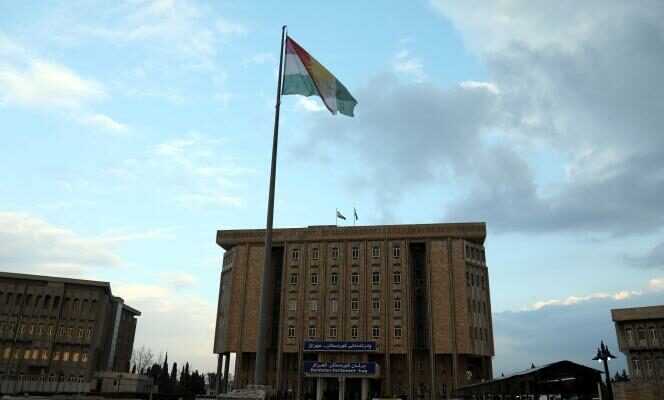shots from “missiles” targeted, Sunday, March 13 before dawn, Erbil, capital of autonomous Kurdistan in the Kurdish north of Iraq. The attack was carried out with “twelve ballistic missiles fired against a district of Erbil and which targeted the American consulate” according to a statement from the Kurdistan Counter-Terrorism Unit. “The missiles were fired outside the borders of Iraq and Kurdistan, [venant] more precisely from the east » from the country.
Iraq shares its long eastern border with Iran, which plays an essential role both politically and economically with its Iraqi neighbor.
“There are no human losses, only material damage”, the statement added. For his part, a spokesman for the US State Department assured that there was no “no damage or casualties at any US government facility”.
The airport of the city, where there is a base of the international anti-jihadist coalition, informed that it had not suffered any damage, denying any interruption of flights.
The local television channel Kurdistan24, whose studios are not far from the new premises of the American consulate, published on its social networks images of its damaged offices, with collapsed sections of the false ceiling and broken glass.
Pictures show damage to Kurdistan 24 office in Erbil after missile attack nearby. https://t.co/v7fyKdHh5J
“We condemn this terrorist attack launched against several sectors of Erbil, we call on the inhabitants to remain calm”Kurdistan Prime Minister Masrour Barzani said in a statement.
A still tense context
These shots against Erbil come nearly a week after the death in Syria of two senior officers of the Revolutionary Guards, ideological army of the Islamic Republic of Iran, killed in an attack attributed to Israel. “The Zionist Regime {Israel] will pay for this crime”promised the guardians in a press release on Tuesday.
This Sunday attack also comes at a time when the negotiations on the Iranian nuclear, about to succeed, have been brutally suspended, following new demands from Moscow. Concluded by Iran on one side, and the United States, China, France, the United Kingdom, Russia and Germany on the other, this pact was supposed to prevent Tehran from acquiring the bomb atomic in exchange for the lifting of the sanctions which are suffocating its economy.
But it crumbled in 2018 after Washington withdrew, decided by Donald Trump, who restored his measures against Iran. In response, Iran gradually freed itself from the limits imposed on its nuclear program. Negotiations resumed after Joe Biden was elected to the White House.
Strikes never claimed
In Iraq, rocket attacks or booby-trapped drones, never claimed, regularly target American interests and the troops of the international anti-jihadist coalition in Iraq, where pro-Iran armed groups are demanding the departure of American soldiers.
At the beginning of the year, the country had experienced a resurgence of this type of attack. Iran and several allied groups in the region were then commemorating the second anniversary of the death of Iranian general Qassem Soleimani and his Iraqi lieutenant Abu Mahdi al-Mohandes, killed by US drone fire in Iraq in January 2020.
In late January, six rockets were fired at Baghdad International Airport, causing no casualties, the latest in a series of attacks generally blamed by Washington on pro-Iran Iraqi factions. In Erbil, the last such attack in Erbil dates back to September, when “armed drones” targeted the airport.
These attacks also occur in a tense post-election context, marked by endless negotiations to form a parliamentary coalition, elect a President and appoint a Prime Minister.
“Erbil under the fire of the losers”reacted in a tweet the Shiite religious leader Moqtada Sadr, big winner of the October legislative elections, which saw the pro-Iran factions record a sharp decline.
